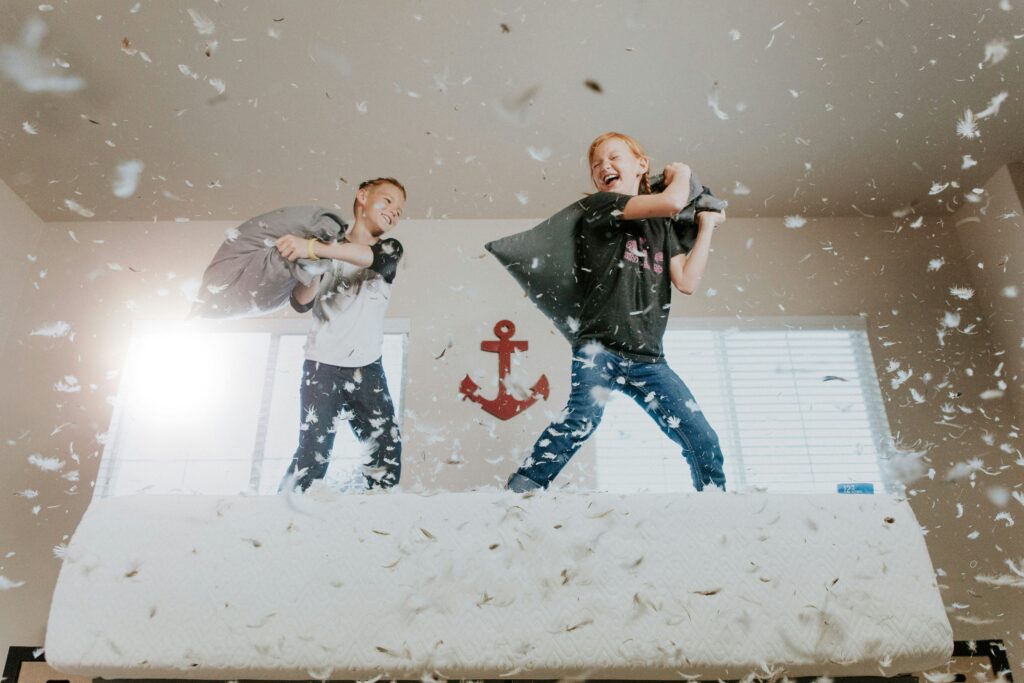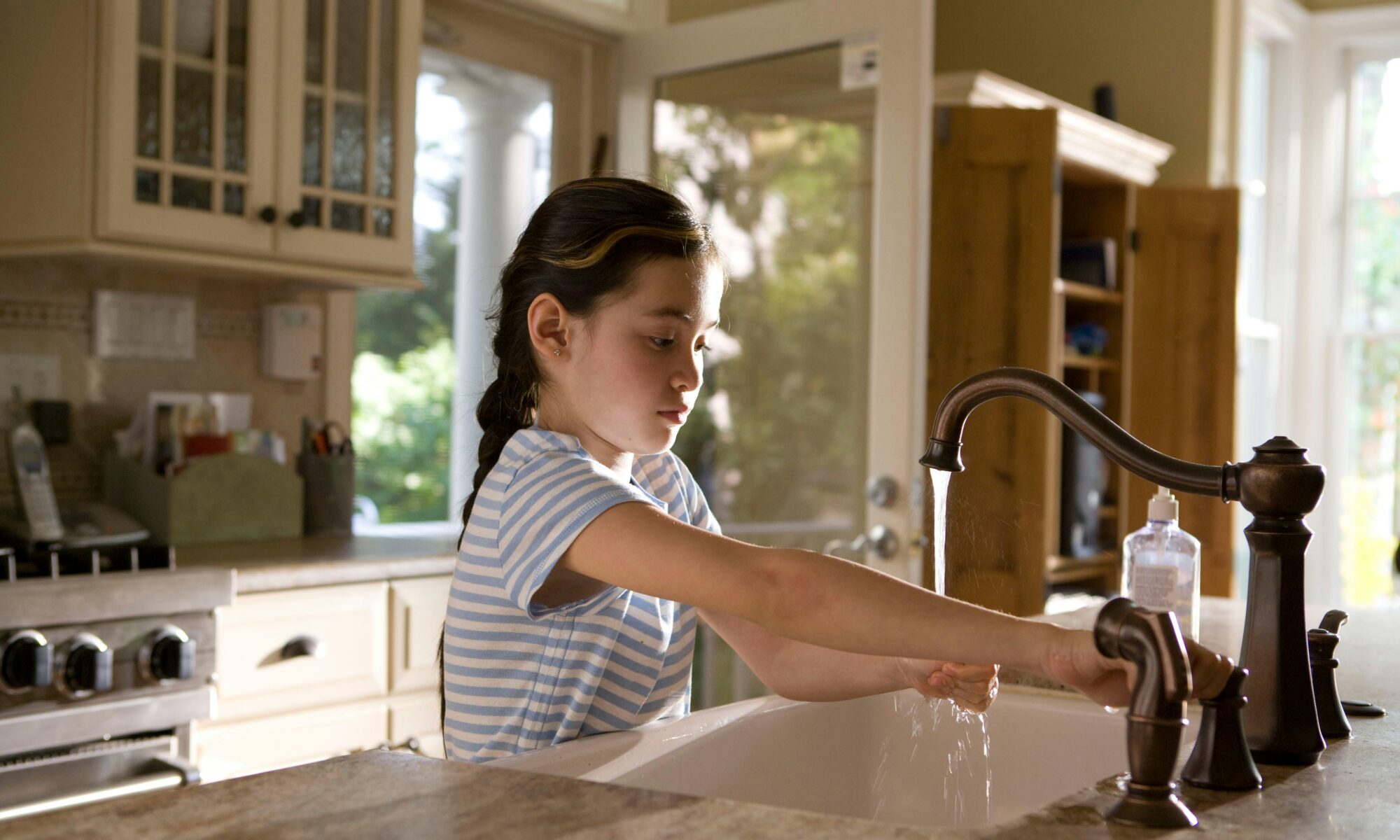Getting kids involved in cleaning the house can be challenging, but with the right approach, it can be a fun and rewarding experience for both parents and children. Encouraging children to help around the house helps maintain a tidy environment and teaches valuable life skills, such as responsibility, teamwork, and discipline. The key to getting kids to clean is to make the task fun, engaging, and something they look forward to, rather than something they must do.
Let’s explore the seven best ways to encourage your kids to help with cleaning, from turning chores into games to offering incentives and rewards!
1. Make Cleaning a Fun Game
One of the best ways to get kids involved in cleaning is by turning it into a game. Children love to play and challenge themselves, so why not incorporate that into their chores? You can set up challenges or time them to see how quickly they can clean up a certain area. For example, you can turn vacuuming or picking up toys into a “race” against the clock or ask them to clean up a room while pretending they are on a mission to find hidden treasures.
You can also create a point system where kids earn points for completing certain cleaning tasks. Once they accumulate enough points, they can trade them for rewards like extra screen time, a special treat, or a fun activity. The key is to make the cleaning process feel like an exciting adventure rather than a chore.
2. Set Age-Appropriate Tasks
When asking your kids to help with cleaning, assigning tasks suitable for their age and abilities is important. Younger children may be unable to handle heavy-duty cleaning tasks, but they can help with things like picking up toys, wiping down surfaces, or putting away their clothes. As they grow older, you can gradually increase the complexity of their chores.
For example, toddlers can help you with easy tasks like sorting laundry or placing their shoes in a designated spot. Older children can assist with vacuuming, wiping windows, or removing trash. Giving kids age-appropriate chores helps them feel more confident in their abilities and prevents frustration.
3. Create a Cleaning Routine
Children thrive on routine and structure, so creating a consistent cleaning schedule can help them understand that tidying up is part of their everyday responsibilities. Whether it’s a weekly cleaning day or a few minutes of tidying up before bed, having a routine helps set expectations and encourages kids to take ownership of their tasks.
You can set a timer for specific tasks or designate certain days for deep cleaning, such as washing windows or organizing the pantry. With a set cleaning routine, kids will know exactly what is expected of them and when it needs to be done. Over time, they will understand the importance of maintaining a clean environment and develop good cleaning habits.

4. Lead by Example
Children often learn by watching their parents, so if they see you actively participating in cleaning, they are more likely to join in. Set the tone by showing enthusiasm when cleaning and demonstrating the steps involved in each task. Working together as a team not only gets the job done faster but also teaches your kids that cleaning is something everyone in the family should contribute to.
If you want your kids to put away their toys, for example, start by cleaning up your belongings in front of them. Make it a family activity where everyone pitches in and works together. When you set a good example, your kids will be more inclined to follow your lead.
5. Offer Praise and Rewards
Positive reinforcement is a great motivator for children. When your kids complete a cleaning task, praise them for their effort and show them how proud you are of their hard work. Offering praise boosts their confidence and reinforces the idea that cleaning is a positive and rewarding experience.
In addition to praise, you can offer small rewards for completing cleaning tasks. These rewards don’t have to be extravagant; simple things like a sticker, an extra bedtime story, or a special activity can go a long way in encouraging your kids to help. Remember that consistency is key, so reward them regularly to keep them motivated.
6. Make It a Family Activity
One of the best ways to get your kids to help you clean is involving the entire family. When cleaning is a shared responsibility, it’s not just about getting the house clean—it’s about spending quality time together. You can turn it into a fun family bonding experience by playing music, chatting, or dancing while cleaning.
For example, you could have a “family cleaning party” every Saturday where everyone pitches in. You can assign each family member a task and work together to clean the house fun and relaxedly. By making cleaning a group activity, your kids will feel like they’re part of something bigger and more enjoyable.
7. Make Cleaning More Engaging with Tools and Supplies
Sometimes, kids need the right tools to make cleaning more enjoyable. Invest in cleaning supplies that are kid-friendly and designed for small hands, such as colorful sponges, more miniature brooms, or mini mops. Letting your children use their cleaning tools makes them feel like they’re using grown-up equipment and gives them a sense of responsibility.
You can also allow them to choose their own cleaning supplies or let them help you pick out new products at the store. Giving them some input in the cleaning process can make them more excited to help out. Plus, they’re more likely to enjoy the experience when they feel ownership over their tools.
Final Thoughts
Getting kids to help with cleaning doesn’t have to be a battle. Making cleaning tasks fun, age-appropriate, and part of a regular routine can instill important life skills in your children while keeping your home tidy. When cleaning becomes a family activity everyone enjoys, it fosters a sense of teamwork, responsibility, and pride in maintaining a clean home.
Remember, the goal is to clean the house and teach your kids the value of keeping their environment organized and taking responsibility for their actions. With the right approach, your kids will help keep the house clean and develop good habits that will last them a lifetime.



You must be logged in to post a comment.